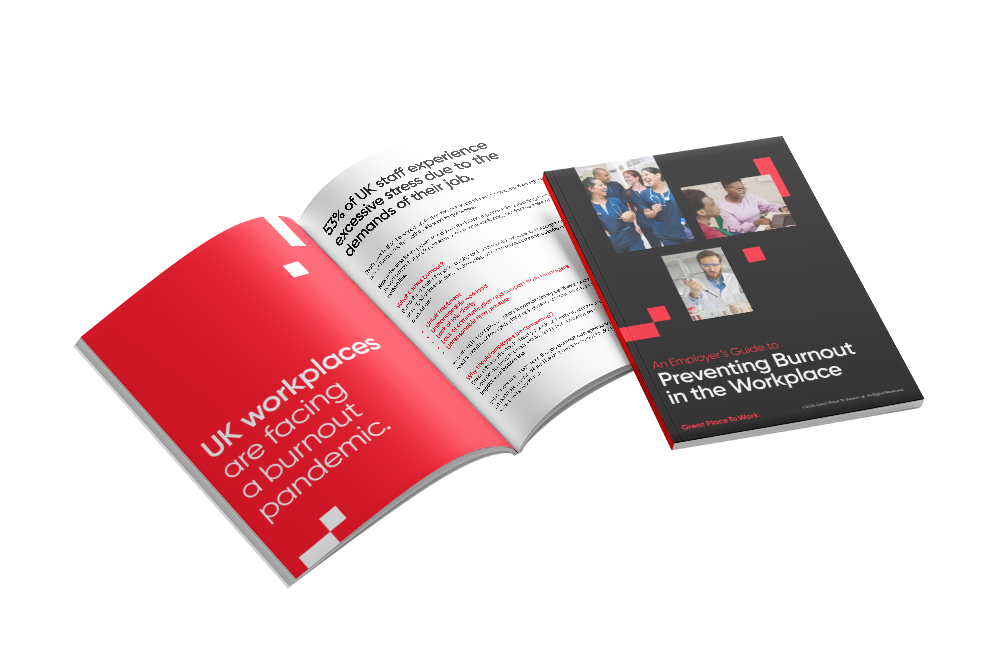The stress of the pandemic affects us all differently – and emotionally we're all at different stages of dealing with the crisis.
Here are a few ideas for how we can help one another during difficult and overwhelming times.
1. Check in
This is an easy gift all leaders can give their people – and it only takes a few minutes!
“How are you doing?” is a simple question that can be surprisingly helpful. Managers who open their one-on-one catch ups with employees show that they care for their people’s wellbeing, and provide a safe zone for employees to share any concerns they may have about themselves, their teammates or the business.
2. Give each other a pass
This is another way of saying ‘practice forgiveness’ in a variety of ways. We may never fully know or understand what personal hardships people have experienced, or may still be going through, during and after times of crisis.
When we internalise that others are probably struggling to some degree with their work and/or personal life, we approach conversations from a place of empathy.
Try to give teammates the benefit of the doubt and assume that everyone is acting from a place of good intentions.
After all, it’s more likely that an uncharacteristic short temper is the result of external factors rather than something personal. And practicing patience and compassion now will also benefit our interpersonal relationships for a future state after the crisis is over.
3. Encourage self-care
After a prolonged period of uncertainty or anxiety, it’s likely many of your employees are struggling to stay motivated – and not just in terms of work.
Daily exercise and mindfulness activities that felt fresh and exciting at the end of March 2020, for example, had lost their novelty before Christmas for many people. But during a crisis is when these self-care activities are needed more than ever.
Ask yourself:
- Are there any mindfulness apps or other wellbeing resources that employees should be reminded of this week?
- Which leaders can be highlighted as self-care role models to help encourage others?
- Do remote working parents have enough flexibility to dedicate time to home-schooling or caring for loved ones, as well as get enough rest for themselves?
These key questions will help you uncover which areas of need should be addressed, and what solutions your organisation may already have in place to help.
 MANAGING WELLBEING MASTERCLASS
MANAGING WELLBEING MASTERCLASS
Learn the tools and skills needed for supporting the mental wellbeing of your direct reports.
4. Shift the focus
We live in a world where pain and tragedy dominate our news media, which can have triggering effects for anyone particularly during times of crisis.
Add on the fact that people were consuming more media while self-isolating and it’s clear how one could easily spiral into despair.
Aside from encouraging self-care, there are many small steps that can be taken to help others stay mentally strong.
Ending a meeting by asking employees to share one thing they feel grateful for is one example where we can help one another to pause our minds briefly and be present and appreciative.
5. Take the pulse
Now may be an ideal time for a pulse check of your workforce. Employee surveys are an essential listening tool that provide invaluable insights into how people are really feeling, but they’re also an act of compassion by giving people an opportunity to voice their concerns anonymously and confidentially.
After all, after two years when crisis and uncertainty have been felt on a global scale, compassion has never been more needed for us all.
 Supporting Your Employees in Their Transition Back to 'Normality'.
Supporting Your Employees in Their Transition Back to 'Normality'.
Our Consultants help organisations to dive deeper into understanding their employee experience through post-survey feedback presentations, workshops and focus groups.
This feature has been adapted from a similar article by Laurie Minnott, a Partner at Great Place to Work®. Laurie consults and coaches CEOs, CHROs and executive leadership teams on advancing business performance and culture change through strategies and solutions that create great workplaces for all.
To learn more about our employee wellbeing services, please click here.








